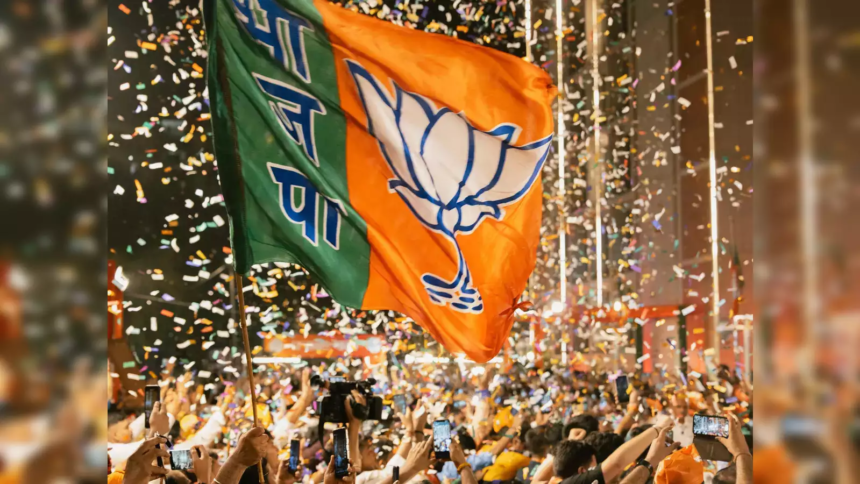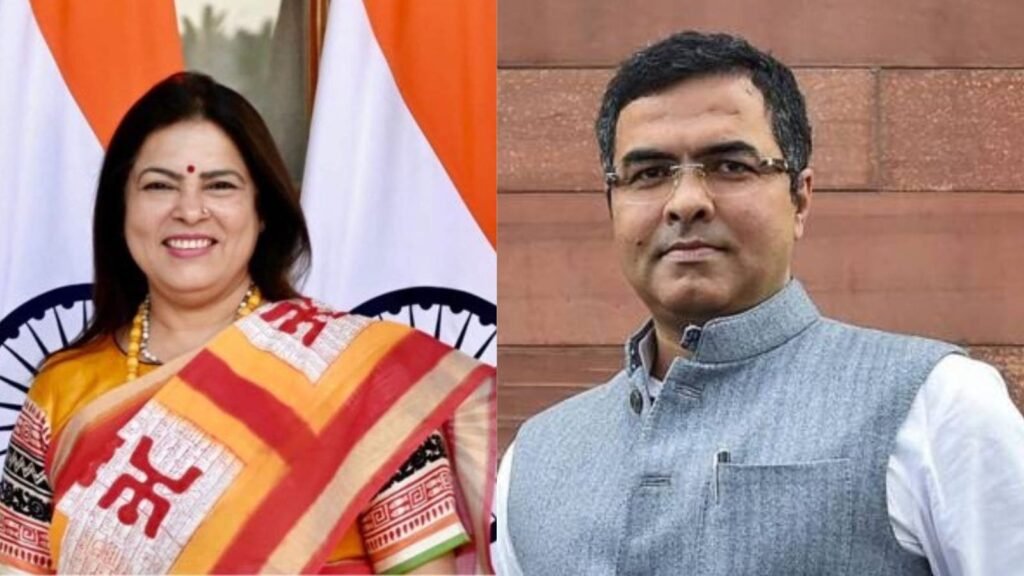The 2025 Delhi Assembly elections are just around the corner, and the political battle is heating up. The BJP candidate list 2025 Delhi has officially been announced, marking the beginning of what promises to be a fierce contest for power in the national capital. The party is focusing its efforts on 29 of the total 70 seats, but this election is far from straightforward. Let’s dive into the key contenders, political strategies,
and everything you need to know about the BJP’s approach to these crucial elections.
BJP Unveils First Set of Candidates for Delhi 2025 Polls
The BJP has made its first move by releasing a list of candidates for the Delhi Assembly elections. These candidates will battle it out on 29 seats across Delhi. This announcement marks the party’s official entry into what is expected to be a highly competitive election season.
Key Candidates to Watch: Parvesh Verma’s Battle with Arvind Kejriwal
One of the most significant headlines from the BJP’s list is the inclusion of Parvesh Verma, a former Member of Parliament, who will be contesting the New Delhi seat. This particular race has garnered much attention as he faces off against none other than Delhi Chief Minister Arvind Kejriwal,
who is also the convenor of the Aam Aadmi Party (AAP).
In a recent statement, Verma expressed gratitude to the BJP leadership for trusting him with such an important seat. He didn’t miss the opportunity to take a jab at Kejriwal, recalling his controversial handling of the COVID-19 crisis. “When Delhi needed oxygen, Arvind Kejriwal was busy distributing free bottles,” Verma remarked. He also highlighted issues like cleaning the Yamuna and tackling pollution,
promising that the BJP government would prioritize these areas if it comes to power.
BJP’s Star Candidate Kailash Gehlot Makes His Move
Another intriguing entry on the BJP’s list is Kailash Gehlot, who once served as a close aide to Arvind Kejriwal. Gehlot’s defection from AAP to the BJP earlier this year has raised eyebrows. He will be contesting from the Bijwasan constituency, a seat that has seen increasing political attention. Gehlot’s shift to the BJP signals the growing discontent within AAP’s ranks, and his campaign promises to focus on local issues, including infrastructure development and better governance.
Ramesh Bidhuri’s Return to Delhi Politics
Ramesh Bidhuri, who was the BJP MP for South Delhi until 2024, is now set to take on a new challenge. He will be contesting from the Kalkaji constituency against none other than Delhi’s Chief Minister Atishi. Bidhuri’s sudden reentry into the electoral fray comes after he was not given a ticket in the 2024 Lok Sabha elections. He has expressed his determination to serve the people of Kalkaji, claiming that under the AAP leadership, Delhi has suffered. In response, Atishi fired back,
questioning why BJP didn’t trust Bidhuri for a Lok Sabha seat if he was such a capable leader.
Arvinder Singh Lovely: A Former Congress Minister Joins BJP
Another familiar face making a significant return is Arvinder Singh Lovely, who served as a minister under Sheila Dikshit’s Congress government. Lovely, who left the Congress party last year, is now contesting from the Gandhinagar constituency under the BJP banner. His decision to join the BJP has raised questions about Congress’s fading influence in Delhi,
particularly in the face of AAP’s growing dominance.
The BJP’s Strategy: Focus on Key Issues
What makes the BJP’s strategy for these elections especially intriguing is its focus on key issues that resonate with Delhi’s electorate. Verma’s emphasis on pollution, the Yamuna cleanup, and infrastructure projects demonstrates the BJP’s efforts to connect with the everyday concerns of Delhiites. This tactic mirrors the BJP’s approach to regional elections in the past,
where the party has successfully built campaigns around local governance issues.
Congress Struggles to Regain Ground in Delhi
Once a dominant force in Delhi politics, Congress has struggled to make an impact in the capital in recent years. While Congress controlled Delhi for 15 consecutive years, it has not won a single seat in the past two assembly elections. The BJP candidate list 2025 Delhi indicates the party’s focus on consolidating its position further, while the AAP and Congress seem to be in a race to reclaim lost ground.
AAP vs BJP: The Battle for Delhi’s Future
As the 2025 Delhi elections approach, the political battle between AAP and BJP is expected to be a highly charged affair. While AAP has managed to secure a firm grip on Delhi’s governance since 2015, BJP has been relentless in challenging its dominance. This election will likely test the endurance of both parties,
as they continue to make strategic moves to sway the electorate.
What’s at Stake for Delhi Voters?
For Delhi voters, the 2025 elections are crucial. The AAP-led government has promised various reforms, especially in education and healthcare. However, the BJP has raised pertinent questions about AAP’s handling of local issues like pollution, water supply, and traffic congestion. The outcome of this election could shape the city’s political landscape for years to come.
Polls in the Context of a Larger National Struggle
Interestingly, these local elections also come at a time when national politics is in a state of flux. Both AAP and Congress are key members of the Opposition bloc INDIA, but their rivalry in Delhi could undermine the broader alliance.
This election is not just about Delhi’s future; it could also have significant implications for national politics.
Read More: Standard Glass Lining IPO: What GMP and Key Details Tell Investors
Conclusion
As we approach the 2025 Delhi Assembly elections, one thing is clear: it’s going to be a thrilling contest. The BJP candidate list 2025 Delhi has set the stage for a fierce battle between AAP and BJP,
with key figures like Parvesh Verma, Ramesh Bidhuri, and Kailash Gehlot taking center stage.
With both parties pushing their agendas and promising a better future for Delhi, voters will have a crucial decision to make.
The outcome will not only determine the future of Delhi but could also influence the broader political climate in India.










